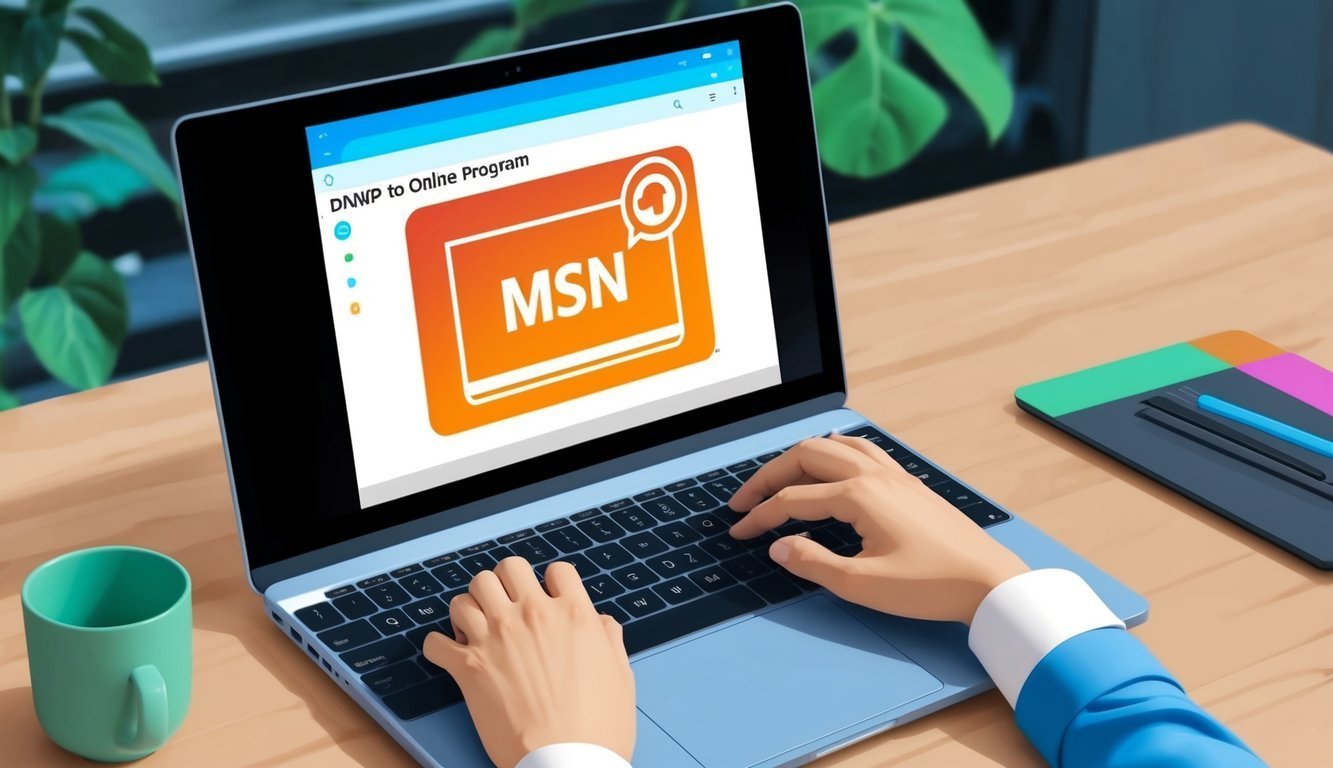The journey from an MSN to a DNP PMHNP online is an important step for nurses seeking to advance their careers in psychiatric mental health.
This pathway allows you to gain the expertise needed to impact mental health care significantly while balancing your education with work and personal commitments.
By opting for online programs, you can enjoy the flexibility necessary to manage your time effectively.
As you explore this degree transition, you’ll discover a curriculum designed to enhance your clinical skills and leadership abilities.
The programs often include both theoretical coursework and practical experiences, ensuring you are well-prepared to address the challenges in mental health settings.
Accreditation is a vital aspect, as it ensures that your education meets high standards, making you eligible for certification and better job opportunities.
Financial considerations are also essential, as many schools offer support and resources to help you manage education costs.
By pursuing this advancement, you position yourself for rewarding career opportunities and contribute to better mental health outcomes in your community.
Key Takeaways
- Transitioning from MSN to DNP PMHNP enhances clinical skills and leadership.
- Online programs offer flexibility to balance education and personal life.
- Financial support and resources are available to help manage costs.
Exploring the MSN to DNP PMHNP Online Pathway
The transition from a Master’s of Science in Nursing (MSN) to a Doctor of Nursing Practice (DNP) in Psychiatric Mental Health Nurse Practitioner (PMHNP) is a significant step.
This pathway enhances your skills, knowledge, and ability to provide comprehensive care in mental health settings.
Defining MSN, DNP, and PMHNP
A Master of Science in Nursing (MSN) prepares you for advanced practice roles as a nurse practitioner or healthcare leader.
In many cases, the MSN focuses on specialized areas within nursing.
The Doctor of Nursing Practice (DNP) is a terminal degree that emphasizes clinical practice and prepares you for leadership in healthcare.
The Psychiatric Mental Health Nurse Practitioner (PMHNP) role involves assessing and treating mental health disorders.
As a PMHNP, you can prescribe medications, provide therapy, and develop treatment plans.
Understanding these terms is crucial as you consider advancing your education.
Importance of Advanced Degrees in Nursing
Advanced degrees, such as the MSN and DNP, are becoming essential for nurses.
With rising healthcare complexities, having advanced practice registered nurses (APRNs) is crucial for addressing patient needs effectively.
Higher education levels are linked to better patient outcomes, increased job opportunities, and higher salaries.
According to the American Association of Nurse Practitioners, only a small percentage of nurse practitioners are certified in psychiatric/mental health, showing a critical need for more professionals in this field.
Advanced degrees equip you to fill this gap and provide vital services in mental healthcare settings.
This pathway allows you to make a meaningful impact on your community’s health.
Curriculum and Academic Requirements
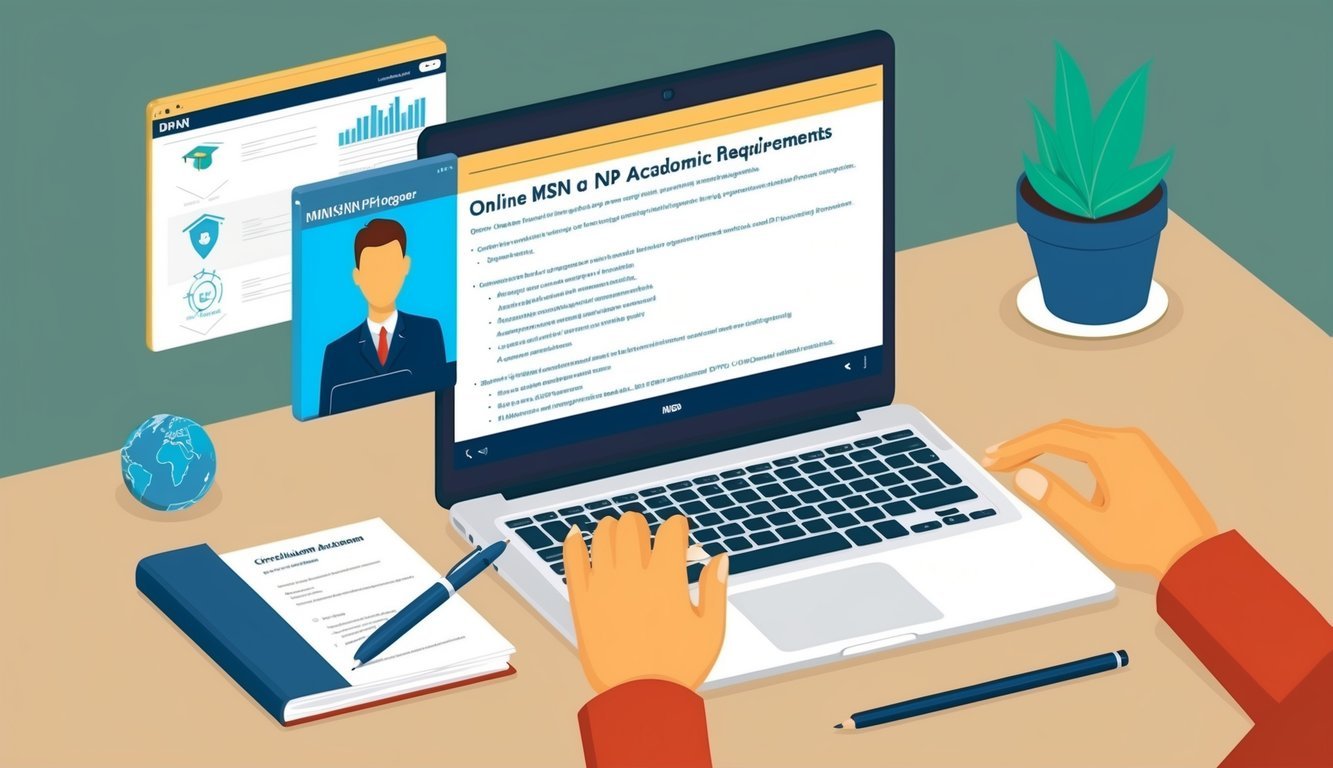
The curriculum for the MSN to DNP PMHNP program is designed to equip you with essential knowledge and skills.
It consists of core coursework, clinical experiences, and residency requirements that prepare you for advanced practice in mental health nursing.
Core Coursework Components
In this program, core coursework covers crucial topics such as pathophysiology, pharmacology, and evidence-based practice.
You will take classes that enhance your diagnostic skills and clinical management capabilities.
Key courses may include:
- Advanced Physical Assessment
- Psychotherapy Techniques
- Health Policy and Advocacy
These subjects are essential as they help you understand mental health disorders and treatment options.
You will also learn how to apply evidence-based interventions effectively in clinical settings.
Clinical Hours and Experiences
Clinical hours are vital for your hands-on training.
The program requires a specified number of clinical hours, allowing you to work directly with patients under supervision.
You can expect to gain experience in various settings, such as:
- Hospitals
- Community clinics
- Private practices
These experiences not only enhance your practical skills but also allow you to implement the theoretical knowledge gained in your courses.
Completing these hours is crucial for your competency as a psychiatric mental health nurse practitioner.
DNP Residency and Project Expectations
The DNP residency is a critical component of your education.
It involves a significant project that demonstrates your ability to apply what you’ve learned.
You will choose a focus area that interests you, such as:
- Quality improvement
- Policy analysis
- Innovations in psychiatric care
This project requires extensive research and collaboration with peers and faculty.
Your residency must align with program objectives and contribute positively to the field.
Successful completion of this requirement shows your readiness for advanced practice.
Accreditation and Certification for PMHNPs
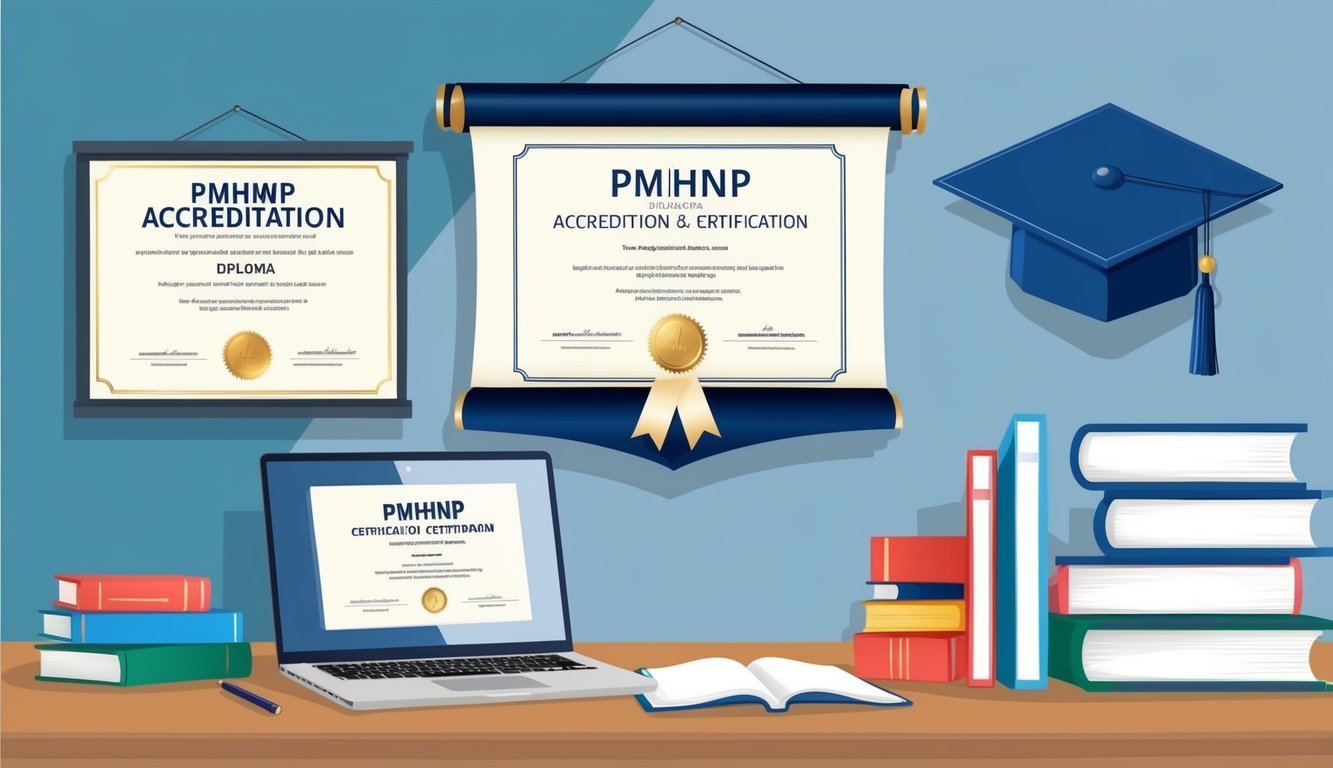
Accreditation and certification are vital to your career as a Psychiatric-Mental Health Nurse Practitioner (PMHNP).
Understanding how these processes work will help you ensure you meet the necessary professional standards.
Understanding Accreditation Importance
Accreditation ensures that nursing programs meet specific quality standards.
This process is crucial for your education as it impacts your eligibility for certification and your ability to practice.
Many programs, like those accredited by the Commission on Collegiate Nursing Education (CCNE), prepare you for advanced clinical roles.
Institutions offering DNP PMHNP programs should be accredited.
A degree from an accredited institution helps you maintain licensure and provides assurance to employers about the quality of your education.
Without proper accreditation, your job opportunities may be limited, affecting your professional growth.
Certification Exams and Credentials
Once you complete your PMHNP program, you must pass certification exams to practice.
These exams validate your knowledge and skills in psychiatric-mental health.
The American Nurses Credentialing Center (ANCC) offers the PMHNP certification exam.
You will receive the PMHNP-BC credential upon passing, which must be renewed every five years.
Different boards, like the Board of Nursing, may have unique requirements.
Additionally, the American Academy of Nurse Practitioners Certification Board has its own certification options.
It is essential to research the certification requirements in your state.
| Certification Organization | Type of Exam | Renewal Period |
|---|---|---|
| American Nurses Credentialing Center (ANCC) | PMHNP-BC Certification Exam | Every 5 years |
| American Academy of Nurse Practitioners | Nurse Practitioner Certification Exam | Every 5 years |
Understanding these aspects will help you navigate your career path effectively.
Financial Considerations and Support
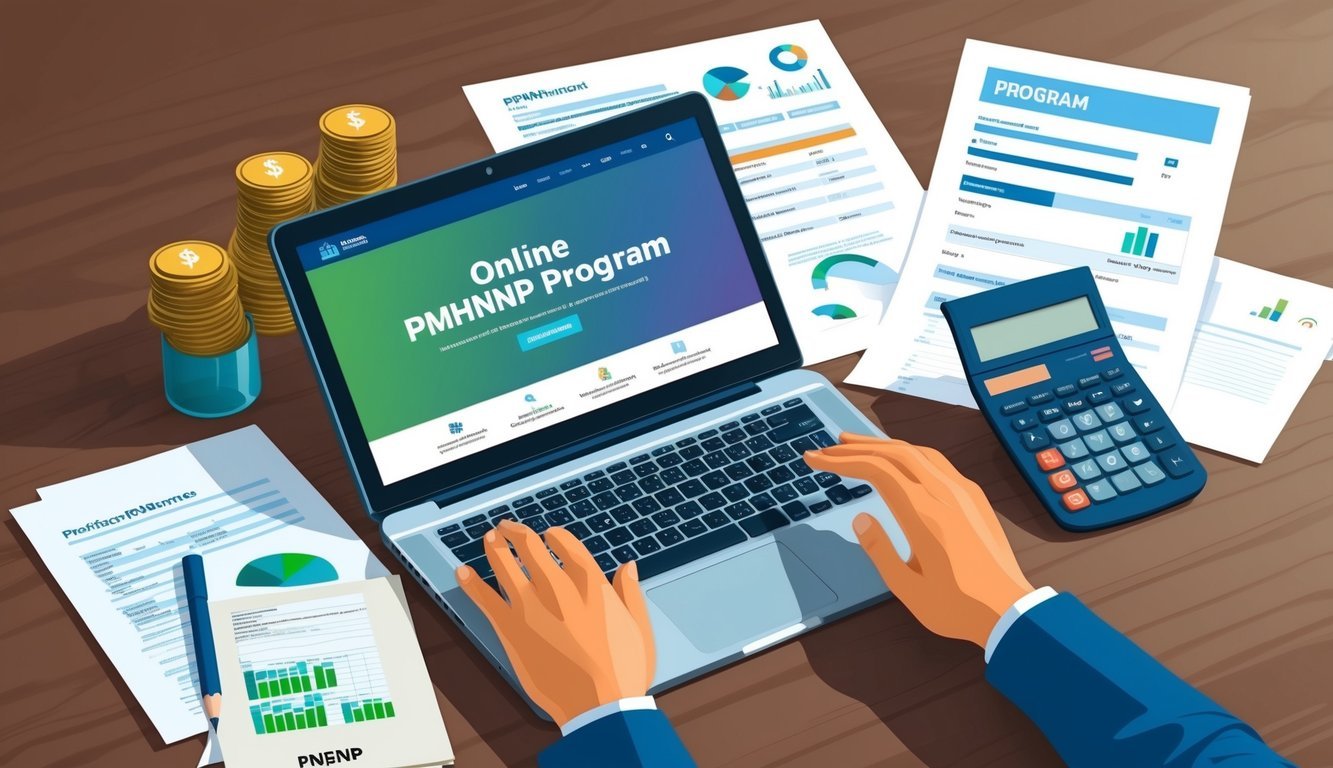
Navigating the costs associated with an online MSN to DNP PMHNP program is essential.
Understanding tuition, financial aid options, and potential scholarships can help you make informed decisions about funding your education.
Tuition Costs and Financial Aid Options
The cost of an online MSN to DNP PMHNP program can vary significantly.
For instance, Yale University’s program charges around $2,001 per credit hour, requiring 52.5 credits to complete the degree.
This translates to a total tuition cost of approximately $105,052.
Many universities offer financial aid to help cover these costs.
You may qualify for federal student loans, which typically have lower interest rates than private loans.
Be sure to fill out the FAFSA (Free Application for Federal Student Aid) to explore all available options.
| University | Tuition Per Credit Hour | Total Credits Required | Estimated Total Cost |
|---|---|---|---|
| Yale University | $2,001 | 52.5 | ~$105,052 |
| Walden University | Varies | Varies | Varies |
| Gonzaga University | Varies | 47 | Varies |
Scholarship and Grant Opportunities
Scholarships and grants provide additional financial support without the need to repay funds.
Various organizations offer scholarships specifically for nursing students.
Research your university’s offerings as well.
Some scholarships may be based on academic merit, while others might target underrepresented groups in the field.
Keep an eye out for grants that support advanced nursing education as they can significantly lower your out-of-pocket costs.
Here are ways to find scholarships:
- University Financial Aid Office: Contact them for available scholarships.
- Nursing Associations: Organizations such as the American Association of Nurse Practitioners often have scholarship opportunities.
- Online Scholarship Databases: Websites like Fastweb and Scholarships.com can connect you with applicable awards.
By being proactive about financing your education, you can reduce your financial burden and focus on achieving your academic goals.
Career Outcomes and Professional Development

As a Psychiatric Mental Health Nurse Practitioner (PMHNP), your career offers diverse opportunities that contribute significantly to mental health care.
You’ll engage in advanced practice nursing while enhancing patient outcomes through effective strategies and leadership roles in healthcare.
Scope of Practice for PMHNPs
PMHNPs hold a vital role in mental health care, able to diagnose and treat various mental health disorders.
Your scope of practice includes:
- Assessment and Diagnosis: You will conduct thorough evaluations to identify mental health conditions.
- Treatment Plans: Developing and implementing personalized treatment strategies is crucial.
- Medication Management: PMHNPs have the authority to prescribe medications, ensuring patient safety and efficacy.
- Therapeutic Interventions: You’ll provide psychotherapy as part of comprehensive mental health care.
In many states, PMHNPs operate with professional autonomy, allowing them to lead in mental health settings.
This level of independence helps optimize patient care and access to services.
Opportunities for Leadership and Research
Pursuing your DNP in PMHNP opens doors for leadership within healthcare systems.
As a leader, you can influence healthcare operations and drive quality improvement initiatives.
Your role might involve:
- Mentoring: Guide new nurse practitioners and foster interprofessional collaboration.
- Policy Development: Get involved in shaping healthcare policies that affect mental health services.
- Research: Engage in studies focused on improving patient outcomes in mental health treatment.
These responsibilities not only enhance your professional development but also benefit the communities you serve.
The Future of Mental Health Care and PMHNP Role
The landscape of mental health care is rapidly evolving.
With increasing awareness of mental health issues, the demand for PMHNPs is on the rise.
Your role is pivotal in addressing this need.
Key trends include:
- Telehealth Expansion: You may utilize telehealth to reach patients in various locations, broadening access to care.
- Integrated Care Models: Collaboration with other healthcare professionals will become essential to provide holistic care.
- Focus on Quality Improvement: Your involvement in quality improvement projects can enhance patient outcomes significantly.
Frequently Asked Questions
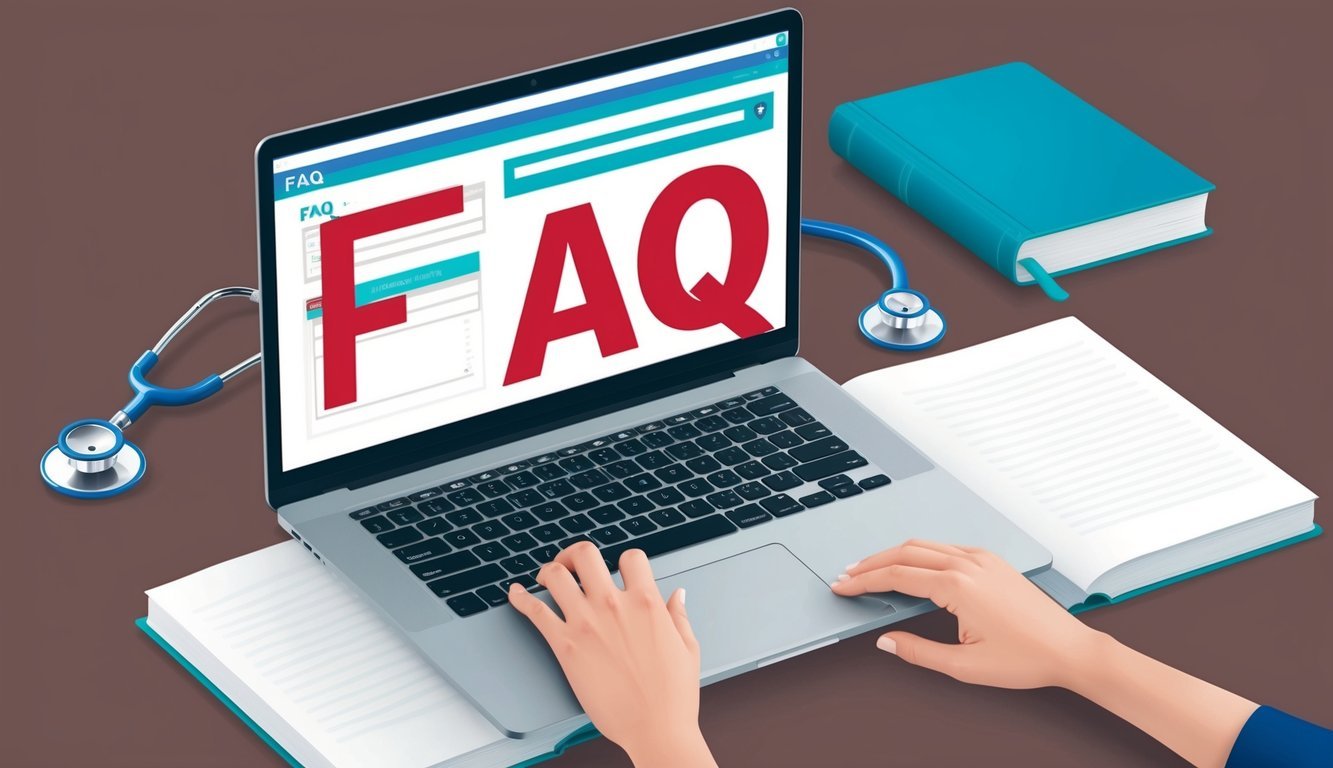
This section addresses common questions about pursuing an online MSN to DNP PMHNP program.
You will find details on program accreditation, duration, prerequisites, and salary expectations to help you make informed decisions.
What are the top accredited online MSN to DNP PMHNP programs?
Choosing an accredited program is crucial for your education and future job prospects.
Some top accredited online programs include those offered by Yale University and Rockhurst University.
These programs provide a comprehensive curriculum and flexibility for working professionals.
How long does it typically take to complete an online MSN to DNP PMHNP program?
Typically, you can complete an online MSN to DNP PMHNP program in about 2 to 4 years, depending on your pace.
For instance, some programs are designed to be finished in around 3 years if you study part-time.
Always check specific program details as they may vary.
Can one pursue a DNP in PMHNP without having an NP designation?
Generally, pursuing a DNP in PMHNP without an NP designation can be challenging.
Most programs require you to have an Active Nurse Practitioner (NP) license or a similar qualification to apply.
Check the requirements of individual programs to confirm.
What is the expected salary difference between MSN and DNP-prepared PMHNPs?
The salary difference between MSN and DNP-prepared PMHNPs can be significant.
According to data, MSN-PMHNPs earn an average salary of about $109,308 per year.
In contrast, DNP-prepared PMHNPs may earn around $137,000 annually.
The additional education often leads to higher pay.
Are there any prerequisites for enrolling in an MSN to DNP PMHNP program?
Yes, there are usually prerequisites for these programs.
Common requirements include having a BSN from an accredited school and a minimum GPA of 3.0.
Some programs may also require a year of nursing experience before you apply.
What factors should be considered when choosing the best online MSN to DNP PMHNP program?
When choosing a program, consider factors like accreditation, program length, faculty qualifications, and overall cost.
Also, look into the flexibility of course schedules to see if they fit your personal and work commitments.
This information can help you make a choice that aligns with your goals.

